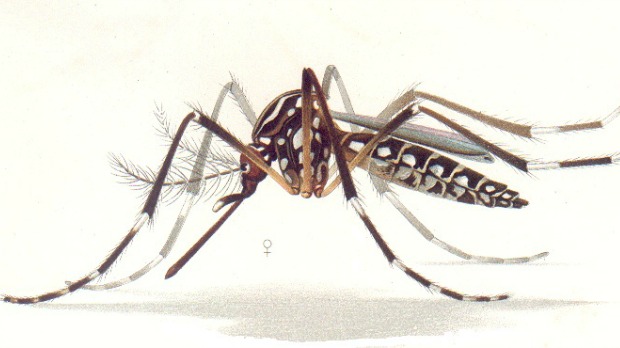 WIKIMEDIA, EMIL AUGUST GOELDIOxitec, a company that breeds genetically modified (GM) mosquitoes whose offspring die young, is launching a facility in Piracicaba, Brazil, to combat viral infections transmitted by Aedes aegypti mosquitoes. Already, Oxitec had been releasing its mosquitoes in a small region of Piracicaba; the program will now expand to the city center.
WIKIMEDIA, EMIL AUGUST GOELDIOxitec, a company that breeds genetically modified (GM) mosquitoes whose offspring die young, is launching a facility in Piracicaba, Brazil, to combat viral infections transmitted by Aedes aegypti mosquitoes. Already, Oxitec had been releasing its mosquitoes in a small region of Piracicaba; the program will now expand to the city center.
“This will bring to the city a new Oxitec factory to meet demand for years to come and help protect the public’s health with this clean and innovative technology,” Mayor Gabriel Ferrato said in a press release.
Oxitec’s program in Piracicaba began in April 2015, and, according to the press release, wild mosquito larvae numbers dropped 82 percent by the end of the year. The mosquitoes are genetically modified so that when mated with wild-type mosquitoes produce larvae that don’t make it to adulthood.
Thomas Scott, who studies vector-borne diseases at the University of California, Davis, said the results from field trials are encouraging. “It will be helpful if future trials can demonstrate disease reduction, determine that the strategy can be scaled-up to modern mega-cities ...














